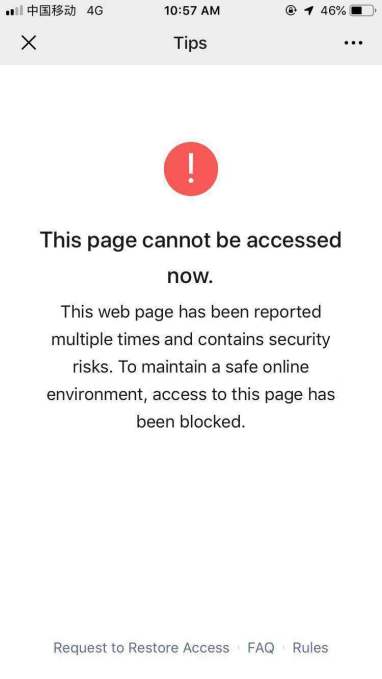Business
WeChat restricts controversial video face-swapping app Zao, citing “security risks”

Zao went viral in China this weekend for its realistic face-swapping videos, but after controversy about its policies, WeChat restricted access to the app on its messaging platform.
Developed by a unit of Momo, one of China’s most popular dating apps, Zao creates videos that replace the faces of celebrities in scenes from popular films, shows and music videos with a selfie uploaded by the user.
The app, currently available only in China, went viral as users shared their videos through WeChat and other social media platforms in China. But concerns about the potential misuse of deepfake technology coupled with a clause (now deleted) in Zao’s terms of use that gave it full ownership and copyright to content uploaded or created on it, in addition to “completely free, irrevocable, perpetual, transferrable, and re-licensable rights,” caused controversy.
In case you haven’t heard, #ZAO is a Chinese app which completely blew up since Friday. Best application of ‘Deepfake’-style AI facial replacement I’ve ever seen.
Here’s an example of me as DiCaprio (generated in under 8 secs from that one photo in the thumbnail) ? pic.twitter.com/1RpnJJ3wgT
— Allan Xia (@AllanXia) September 1, 2019
By going viral quickly and being very easy to use (Zao’s videos can be generated from a single selfie, though it suggests that users upload photos from several angles for better results), the app has also focused more attention on deepfake technology and how it can potentially be used to spread misinformation or harass people.
Users can still upload videos they created with Zao to WeChat, but if they try to download the app or send an invite link to another WeChat user, a message is displayed that says “this web page has been reported multiple times and contains security risks. To maintain a safe online environment, access to this page has been blocked.”
Zao was released last Friday and quickly became the top free iOS app in China, according to App Annie. A statement posted on Sept. 1 to Zao’s Weibo account says “we completely understand everybody’s concerns about the privacy issue. We are aware of the issue and we are thinking about how to fix the problems, we need a little time.” Its terms and conditions now say user-generated content will only be used by the company to improve the app and that all deleted content will be removed from its servers.
TechCrunch has contacted Zao for comment.
-

 Entertainment6 days ago
Entertainment6 days agoOpenAI’s plan to make ChatGPT the ‘everything app’ has never been more clear
-

 Entertainment5 days ago
Entertainment5 days ago‘The Last Showgirl’ review: Pamela Anderson leads a shattering ensemble as an aging burlesque entertainer
-

 Entertainment6 days ago
Entertainment6 days agoHow to watch NFL Christmas Gameday and Beyoncé halftime
-

 Entertainment5 days ago
Entertainment5 days agoPolyamorous influencer breakups: What happens when hypervisible relationships end
-

 Entertainment4 days ago
Entertainment4 days ago‘The Room Next Door’ review: Tilda Swinton and Julianne Moore are magnificent
-

 Entertainment3 days ago
Entertainment3 days ago‘The Wild Robot’ and ‘Flow’ are quietly revolutionary climate change films
-

 Entertainment4 days ago
Entertainment4 days agoCES 2025 preview: What to expect
-

 Entertainment3 days ago
Entertainment3 days agoMars is littered with junk. Historians want to save it.
















